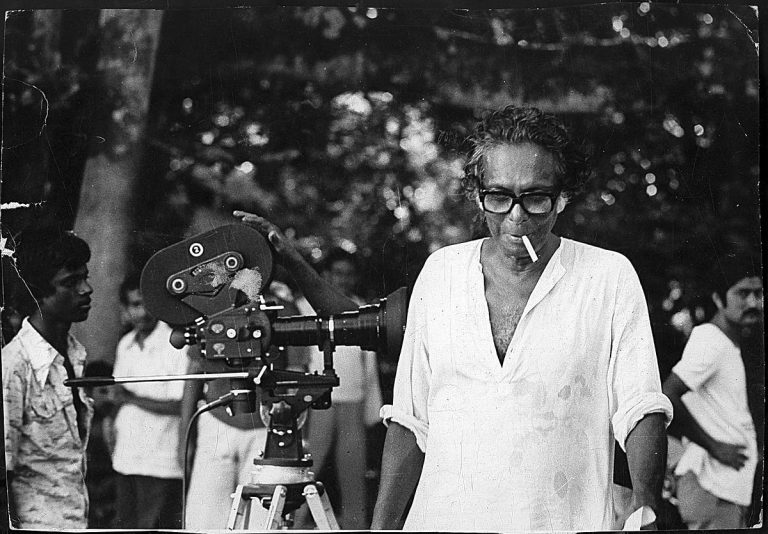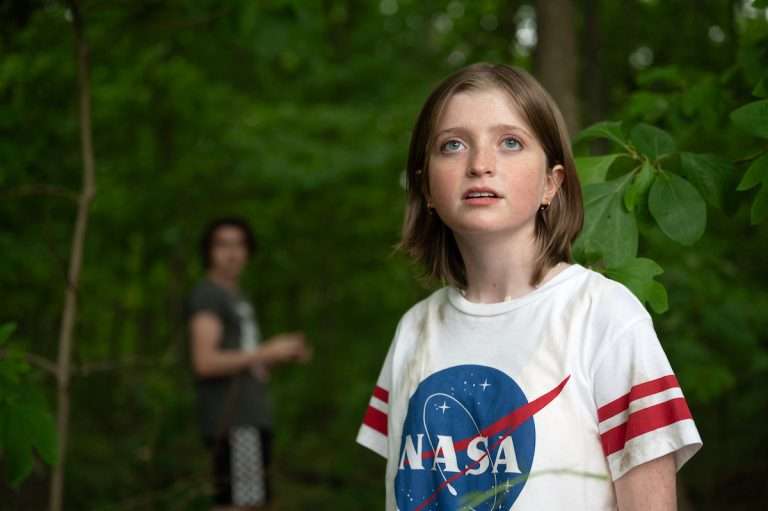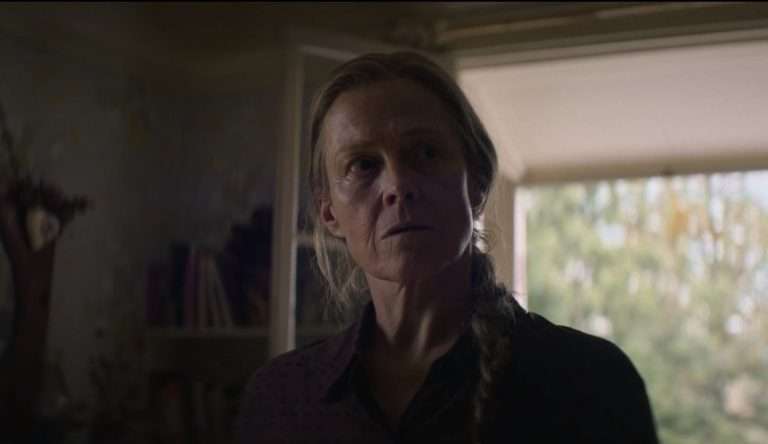You’ve seen this before. A young, unassuming person suddenly gets thrust into the Hollywood limelight as they realize the vanity and hollowness of all the glitter. Saverio Costanzo, who you may know from HBO’s beloved Italian drama “My Brilliant Friend,” is no stranger to the 1950s. “Finalmente l’alba (Finally Dawn)”, which is set in the same period and features an ensemble Hollywood cast, evokes a singular time in Italian movie history when Cinecitta (one of the prominent studios of the time) was known for hosting lavish, sword-and-sandals epics like Ben-Hur.
The young person in question here is Mimosa (Rebecca Antonaci), a doe-eyed movie lover whose love for the medium is quickly established as she, her mother, and a more conventionally attractive older sister Iris (Sofia Panizzi) come out of the latest War movie playing in their local theatre in Rome.
As they exit the theatre, discussing the obsession of new-age directors with the futility of the war that they have just suffered, a crew member from Cinecitta spots Iris and invites her to audition for the latest epic about a female pharoah (a sort of Cleopatra parody on first look) played by Josephine (is played by Lily James in the movie). Now, Mimosa just tags along with her sister, but is quickly spotted by Josephine in a corridor and is offered one of the bigger roles in the film.
Now, “Finally Dawn” thereby turns into an endless loop of excess that the American actors and their consequent Italian hosts go on. Much like “La Dolce Vita,” the excess uncovers the hidden hollowness of the world of movie stars that Mimosa so dearly adores from a distance. We quietly follow her footsteps once the shot of the day is captured. However, the film’s more surreal edges keep pushing it further away from making a point.
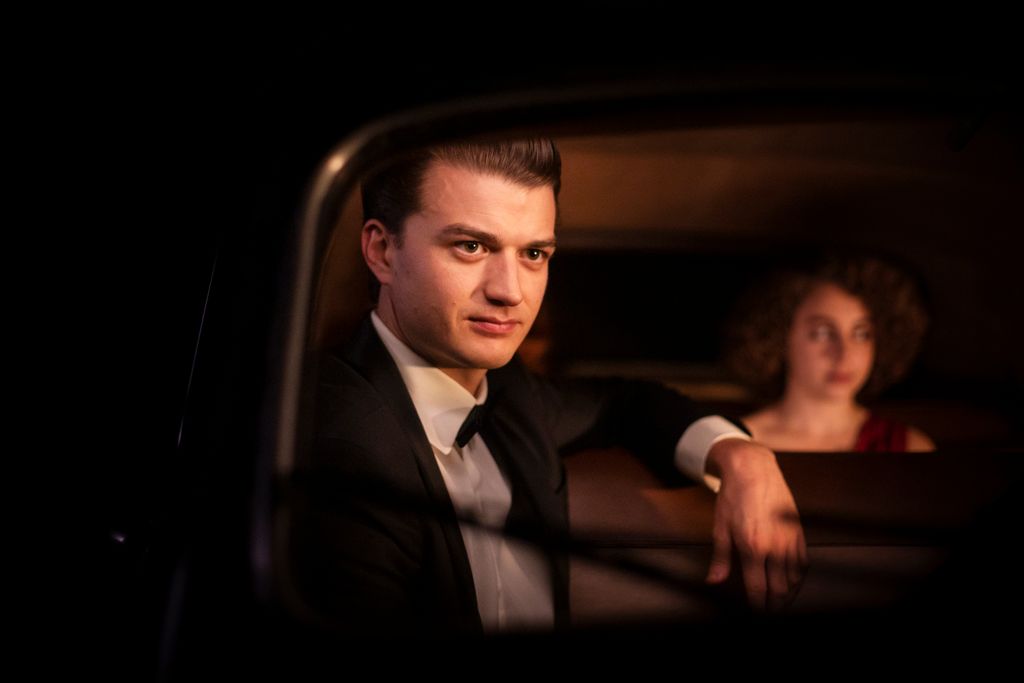
James’ diva-like rendition of Josphine feels melodramatic to a point where you either feel nothing towards her, or you simply follow along. Her reasons for inviting Mimosa to tag along with them stem from some deep-seated insecurities and personal demons, but the film is never able to establish any of that. Making Josphie feel like a centre-piece that is given more attention than it rightfully needs, even in the movie-within-the-movie scenario.
I mean, it is quite right to establish Mimosa’s moral standpoint, who doesn’t accept being naked for her shot, but then the film also opens up the tragic death of Wilma Montesi — a real-life incident where an extra on a movie set was found dead on the beach; but never does anything about it except using it symbolically. Director Costanzo has said that he wanted to make the movie because of Wilma’s story, and while he is able to draw parallels through Mimosa’s coming-of-age, using Wilma’s story like that felt a bit exploitative to me.
The film also features an ensemble cast, including Joe Keery, Rachel Sennott, Alba Rohrwacher, and Willem Dafoe, but none of them feel like characters who bring something substantial to the table. It also doesn’t help that newcomer Rebecca Antonaci, who has a remarkable screen time, doesn’t evoke the kind of emotional connection the director is going for. Her character, although essential to the film’s proceedings, feels nudged down by the script’s many meandering tendencies.
Eventually, beyond the great production design that quietly brings back the 1950s and some smashing costume work, “Finally Dawn” is unable to elicit anything particularly interesting for the audience to pay heed to. The lion, for instance, is used as a broad metaphor, but much like its existence within the context of the film itself, the metaphor falls flat, and Mimosa’s story; instantly forgettable.



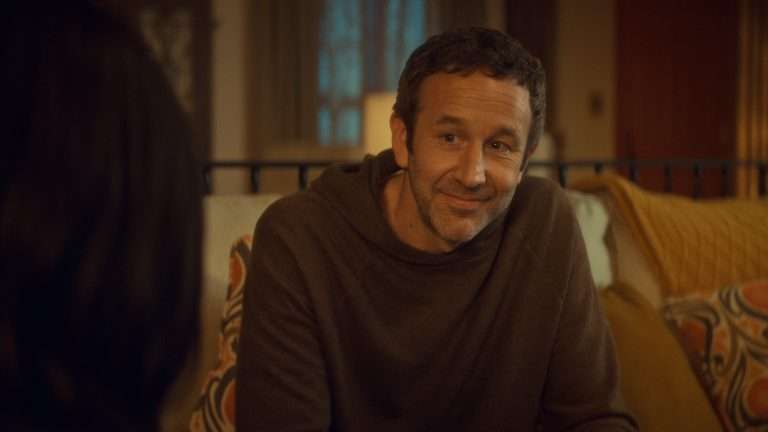
![False Positive [2021] ‘Hulu’ Review: “Elevated” Mommy Brain](https://79468c92.delivery.rocketcdn.me/wp-content/uploads/2021/06/False-Positive-HULU-Review-1-768x404.jpg)
